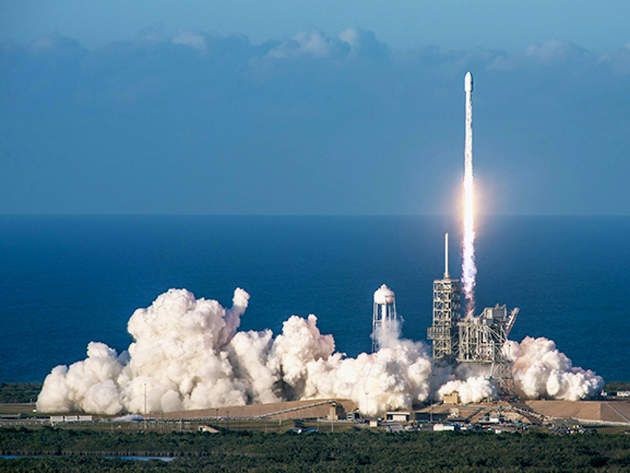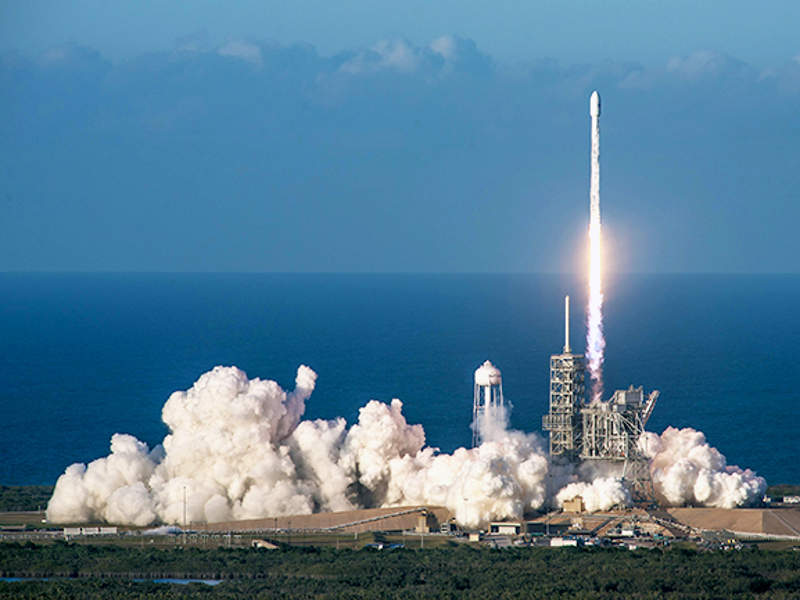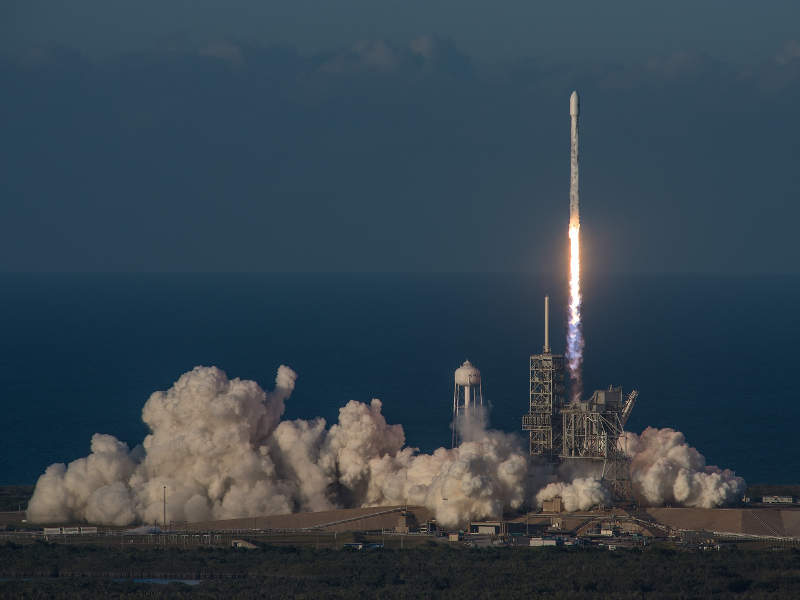
Inmarsat-5 Flight 4 (I-5 F4) commercial communications satellite was launched aboard Falcon 9 rocket from Kennedy Space Centre in Florida, US, this May. The satellite will be placed at a geostationary orbit located approximately 35,786km above Earth.
It will provide broadband connectivity services with global coverage to users on land and at sea. It will be owned and operated by world-wide mobile satellite broadband service provider, Inmarsat. The satellite is expected to start operations by the end of this year.
Inmarsat-5 F4 is the last in the Global Xpress (GX) constellation manufactured for supporting Inmarsat’s mobile satellite broadband product. Earlier satellites in the series include Inmarsat F1, F2 and F3 satellites, which were launched in December 2013, February 2015 and August 2015 respectively.
Inmarsat-5 F4 satellite design and development
The Inmarsat-5 F4 satellite design and manufacturing contract was awarded to Boeing Network and Space Systems in October 2013. The satellite was constructed at Boeing’s El Segundo facility located in California, US. It was developed as a back-up satellite as part of a $1.6bn investment intended for developing the Global Xpress network.
The satellite has a launch mass of 6,070kg and a body height of 7m. It has twin solar arrays, which are equipped with five panels of ultra-triple-junction gallium arsenide solar cells, and it features an xenon ion propulsion system (XIPS) for in-orbit manoeuvring. The design lifespan of the spacecraft is 15 years.
The satellite was based on BSS-702HP, a flight-proven satellite bus developed by Boeing.
Launch vehicle details of I-5 F4
The Inmarsat-5 F4 satellite launch contract was awarded to SpaceX in 2014. The satellite was launched aboard the two-stage Falcon 9 rocket. The 70m-high rocket was blasted off without the landing legs and grid fins. The two-stage launch vehicle was delivered into the orbit 32 minutes after take-off.
The first stage of the rocket was powered by nine kerosene-fuelled Merlin-1D engines, which generate 1.7 million pounds of thrust. The second stage was powered by a single vacuum-optimised Merlin-1D engine.
The launch operations were performed at the Launch Complex 39A at Nasa’s Kennedy Space Centre in Florida, US.
Communication capabilities of Inmarsat-5 F4 satellite
The satellite is fixed with 89 Ka-band fixed-spot beams and six steerable spot beams. It will provide enhanced services for the Global Xpress network of Inmarsat.
I-5 F4, along with three other satellites in the GX series, will offer a wide range of voice and data services through an established global network of distributors and service providers.
The satellite will offer its services to customers across aviation, maritime, enterprise and government sectors. It will offer improved downlink communication speeds of up to 50mb/s, and up to 5mb/s on the uplink side.
Satellite ground control station for Inmarsat-5 F4 satellite
Inmarsat-5 F4 satellite is controlled from Boeing and Inmarsat satellite operations centre based at Boeing’s facility in El Segundo.
The Perth ground station obtained the first signal of the satellite. I-5 F4 will undergo payload testing by Inmarsat’s satellite control centre based in London, UK, before beginning commercial operations.






